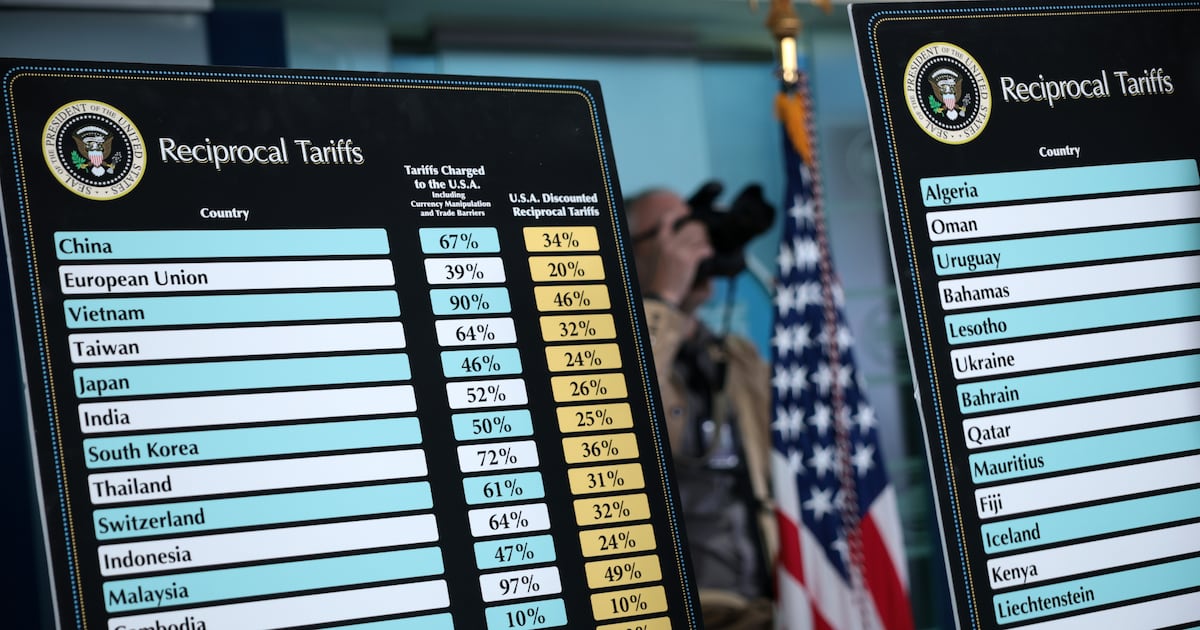The US has announced it is slashing the tariff on small parcels sent from mainland China and Hong Kong to the US from 120 percent to 54 percent, hours after Washington and Beijing agreed a 90-day pause in their trade war.
Donald Trump signed an executive order more than halving the levy, which was brought in at the start of this month to close the âde minimisâ loophole allowing low-value goods to be sent to the US without paying import fees.
The exemption â taken from the Latin phrase for âof little importanceâ â had meant items sent from abroad via post valued at up to $800 (£606) were able to enter the US duty-free and with nominal inspections. It fuelled the rise of fast fashion companies sending goods from China such as Shein and Temu.
In February, the US president moved to close the loophole, imposing a tax of 120 percent of the value of any package coming from China or a flat fee of $100 from 2 May. That tariff will fall to 54 percent from Wednesday. The alternative flat fee of $100 will remain but it will not rise to $200 in June as planned.
The announcement came after Trump hailed a âtotal resetâ in relations between the US and China as the countries agreed to reduce their total tariffs on each other by 115 percentage points, to 30 percent and 10 percent respectively. âTheyâve agreed to open up China,â Trump claimed at a press conference at the White House on Monday.
However, after the apparent trade war truce initially sent stocks soaring on Wall Street, futures pointed to a lower open on American stock markets on Tuesday as European shares rose only moderately.
Ipek Ozkardeskaya, a senior analyst at Swissquote Bank, said: âUncertainty over what happens after the 90-day pause will keep many companies in wait-and-see mode, delaying investment decisions until a more durable truce emerges.â
As part of the detente, China has reportedly removed a month-long ban on airlines taking delivery of Boeing planes, according to Bloomberg News.
Economists at Goldman Sachs have cut the chances of a US recession in the next 12 months to 35 percent, from 45 percent. They now forecast the US economy will grow by 1 percent during 2025, twice as fast as the 0.5 percent previously forecast, because of lower tariffs and the recent easing of financial conditions.
The de minimis trade policy was introduced in the 1930s to allow travellers returning to the US to bring goods with them worth up to $5 without declaring them to customs. It has been the target of growing criticism from Democratic and Republican lawmakers.
The number of shipments entering the US this way ballooned in recent years, and more than 90 percent of all packages arrived via de minimis. Of those, about 60 percent arrived from China, led by direct-to-consumer retailers such as Temu and Shein.
Some have criticised it as a loophole that allows cheap Chinese products to flood in to the US and undercut American industries, while also serving as cover for smuggling in illegal drugs such as fentanyl.
The UK makeup brand Revolution Beauty said it âvery muchâ welcomed the truce in the US-China trade war. Almost a quarter of the companyâs sales were generated in the US market in the past year, with 60 percent of products sold in the US being manufactured in China.
A survey by Bank of America shows that 61 percent of fund managers expect a soft landing for the US economy, up from 37 percent in April, while the number of those predicting a hard landing has nearly halved to 26 percent, from 49 percent.
Learn more:
US and China Reach Deal to Slash Tariffs
The 90-day pause will significantly reduce reciprocal tariffs between the two countries, offering a temporary reprieve from an increasingly intense trade war.

